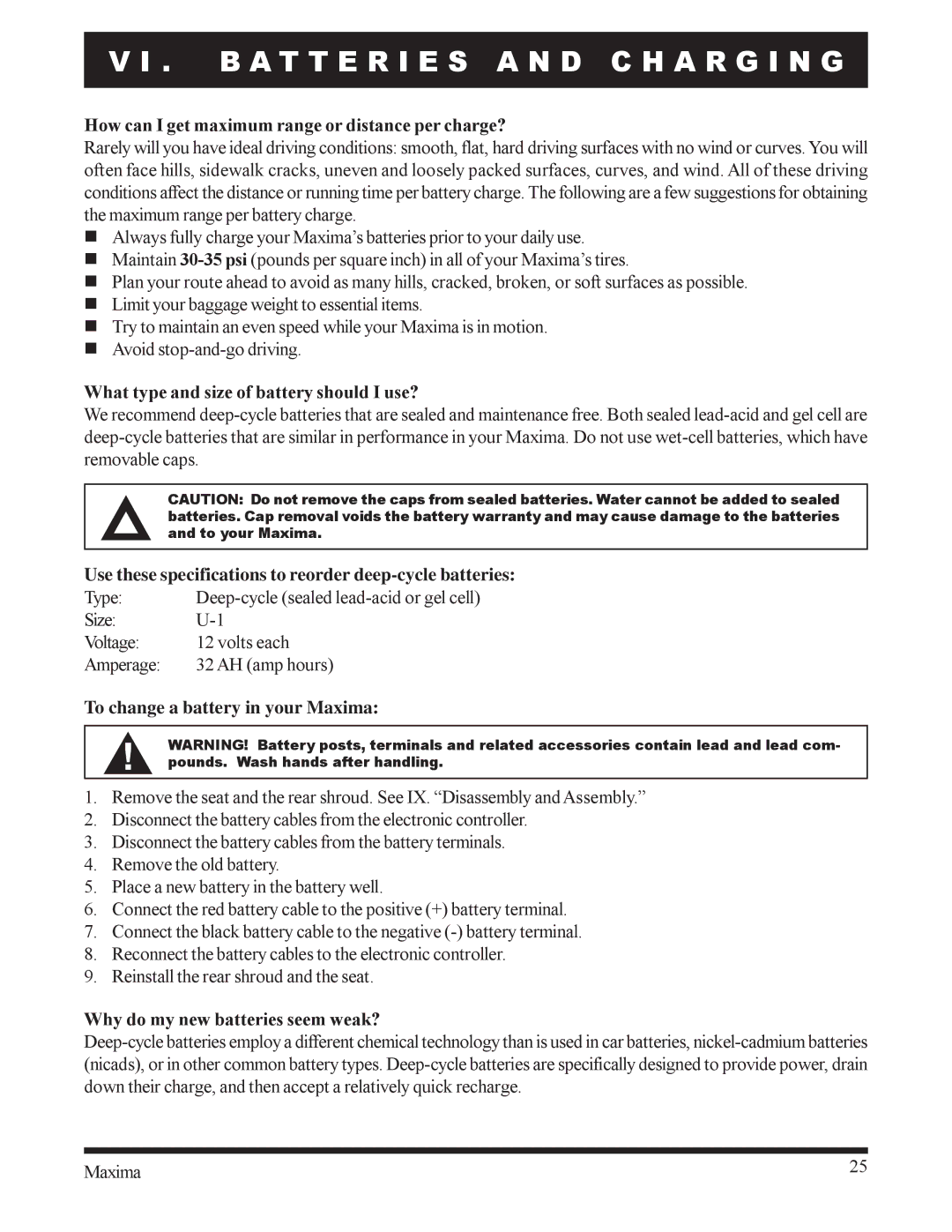
V I . B A T T E R I E S A N D C H A R G I N G
How can I get maximum range or distance per charge?
Rarely will you have ideal driving conditions: smooth, flat, hard driving surfaces with no wind or curves. You will often face hills, sidewalk cracks, uneven and loosely packed surfaces, curves, and wind. All of these driving conditions affect the distance or running time per battery charge. The following are a few suggestions for obtaining the maximum range per battery charge.
νAlways fully charge your Maxima’s batteries prior to your daily use.
νMaintain
νPlan your route ahead to avoid as many hills, cracked, broken, or soft surfaces as possible.
νLimit your baggage weight to essential items.
νTry to maintain an even speed while your Maxima is in motion.
νAvoid
What type and size of battery should I use?
We recommend
CAUTION: Do not remove the caps from sealed batteries. Water cannot be added to sealed batteries. Cap removal voids the battery warranty and may cause damage to the batteries and to your Maxima.
Use these specifications to reorder
Type: | |
Size: | |
Voltage: | 12 volts each |
Amperage: | 32 AH (amp hours) |
To change a battery in your Maxima:
WARNING! Battery posts, terminals and related accessories contain lead and lead com- pounds. Wash hands after handling.
1.Remove the seat and the rear shroud. See IX. “Disassembly and Assembly.”
2.Disconnect the battery cables from the electronic controller.
3.Disconnect the battery cables from the battery terminals.
4.Remove the old battery.
5.Place a new battery in the battery well.
6.Connect the red battery cable to the positive (+) battery terminal.
7.Connect the black battery cable to the negative
8.Reconnect the battery cables to the electronic controller.
9.Reinstall the rear shroud and the seat.
Why do my new batteries seem weak?
Maxima | 25 |
|
